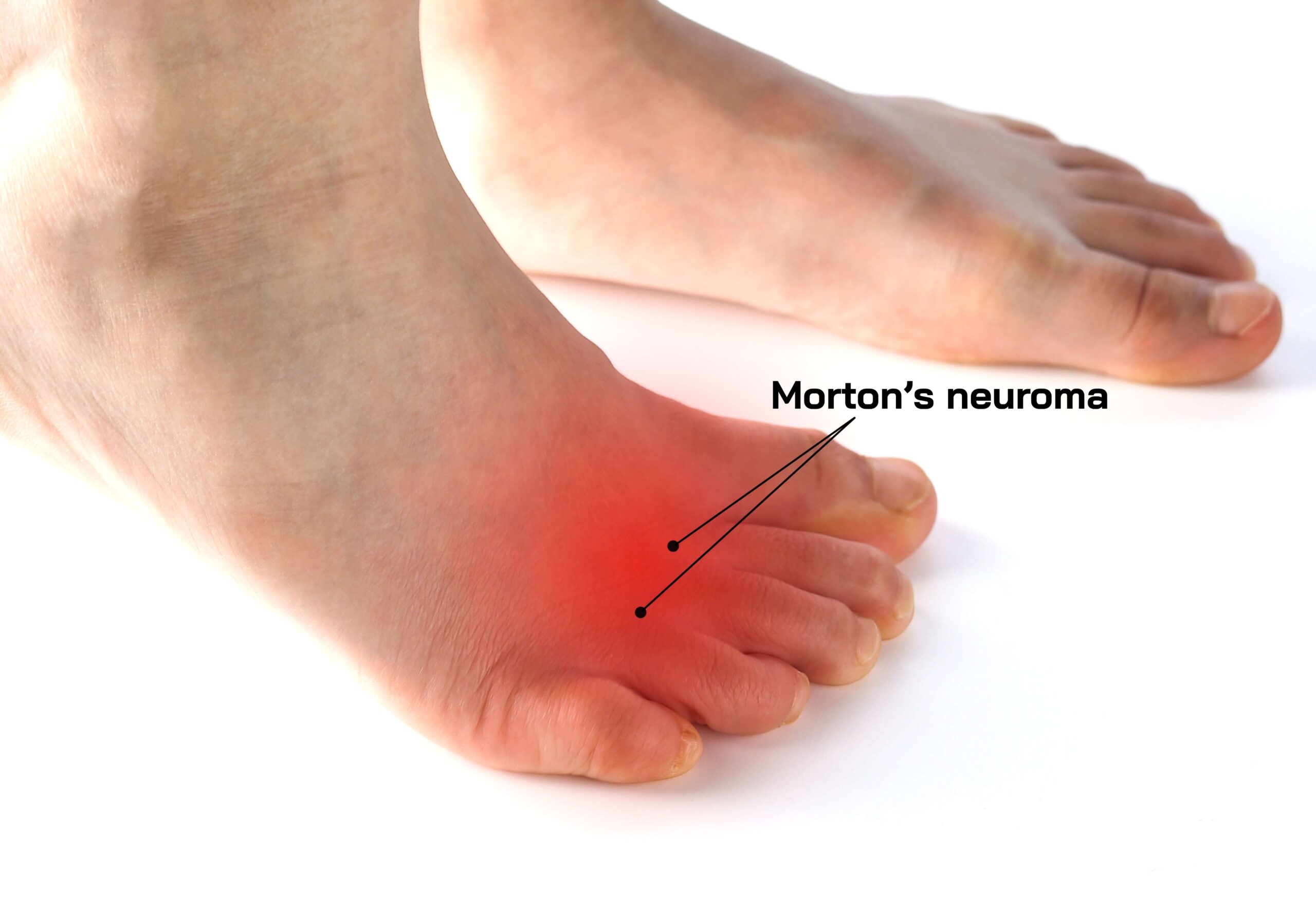Running with Morton’s Neuroma: Tips and Precautions
Morton's Neuroma is a common condition that affects runners, particularly those who run long distances. It is a painful condition involving the thickening of tissue around the nerve between the metatarsal bones in the foot ball. If you are a runner with Morton's Neuroma, you may experience pain, numbness, and tingling in the foot, which can significantly affect your running performance. In this article, we'll explore tips and precautions for running with Morton's Neuroma, so you can continue to enjoy running without further aggravating your condition.
What is Morton's Neuroma?
Morton's Neuroma is a condition that involves the thickening of tissue around the nerve between the metatarsal bones in the ball of the foot. It can cause pain, numbness, and tingling in the foot, particularly in the forefoot area. Morton's Neuroma can be caused by several factors, such as wearing tight shoes, high heels, and running shoes with a narrow toe box. Overuse and stress fractures can also aggravate the condition.
How Running Affects Morton's Neuroma
Running can cause additional pressure and compression on the affected nerve, exacerbating Morton's Neuroma symptoms. The impact of the foot on the ground can also inflame the nerve and cause pain, numbness, and tingling in the foot. For runners with Morton's Neuroma, this can be a significant challenge.
Precautions for Running with Morton's Neuroma
If you're a runner with Morton's Neuroma, there are several precautions you can take to minimize the risk of exacerbating your symptoms while running. Here are some tips:
- Wear proper footwear: Choose running shoes with a wide toe box that provides ample space for your forefoot. Avoid tight shoes and high heels that compress your forefoot and aggravate your Morton's Neuroma.
- Use orthotics: Metatarsal pads or custom orthotics that can distribute pressure evenly across your foot and relieve stress on the affected nerve.
- Modify running form and pace: Avoid striking the ground with your forefoot and instead focus on landing on your midfoot or heel. Reduce your running pace and distance to minimize the impact on your feet.
- Avoid hard surfaces: Run on soft surfaces, such as grass, dirt, or a rubber track, to reduce the impact of running on your feet.
- Wear the right socks: Wear socks with extra padding in the forefoot area to provide cushioning and relieve pressure on the affected nerve.
Treatment Options for Morton's Neuroma
If your Morton's Neuroma symptoms persist despite taking precautions, several treatment options are available. These include:
- Medication: Over-the-counter anti-inflammatory medication, such as ibuprofen, can help relieve pain and inflammation.
- Injection therapy: Corticosteroid injections can help reduce inflammation and relieve pain.
- Physical therapy: Stretching and strengthening exercises can help improve foot function and reduce stress on the affected nerve.
- Surgery: In severe cases, surgery may be necessary to remove the affected tissue and relieve pressure on the nerve.
It's essential to seek professional help for proper diagnosis and treatment, as self-diagnosis and self-treatment can exacerbate your condition.

Preventing Morton's Neuroma
Preventing Morton's Neuroma from developing or recurring is possible by taking preventive measures such as:
- Wearing proper footwear: Choose shoes with a wide-toe box and low heels that provide ample space and support for your feet.
- Avoid tight shoes and high heels: Tight shoes can compress your forefoot and cause pressure on the affected nerve.
- Using custom orthotics: Custom orthotics can provide additional support and cushioning to your feet, reducing the risk of developing Morton's Neuroma.
- Stretching and strengthening exercises: Performing exercises that stretch and strengthen your feet can improve foot function and reduce stress on the affected nerve.
- Managing underlying conditions: Conditions such as arthritis and diabetes can increase the risk of developing Morton's Neuroma. Proper management of these conditions can help prevent the development of Morton's Neuroma.
Conclusion
Morton's Neuroma can be challenging to manage, particularly for runners. However, by taking precautions and seeking professional help for proper diagnosis and treatment, runners with Morton's Neuroma can continue to enjoy running without further aggravating their condition. Preventive measures such as wearing proper footwear, using custom orthotics, and performing stretching and strengthening exercises can also help prevent the development or recurrence of Morton's Neuroma. If you're experiencing foot pain, numbness, or tingling, consult with a podiatrist to determine the cause of your symptoms and find the best course of treatment.
FAQ
Will running make Morton's Neuroma worse?
Running can aggravate Morton's Neuroma symptoms, particularly if you're experiencing pain, numbness, or tingling in the foot. The impact of the foot on the ground can compress the affected nerve, leading to inflammation and irritation. However, by taking precautions such as modifying your running form and wearing proper footwear, you can reduce the impact on your feet and minimize the risk of exacerbating your symptoms.
Can running cause Morton's Neuroma?
Running is not a direct cause of Morton's Neuroma. However, overuse, stress fractures, and wearing improper footwear can increase the risk of developing the condition. Runners who consistently subject their feet to high impact and pressure are at increased risk of developing Morton's Neuroma.
How to run with Morton's Neuroma?
If you're a runner with Morton's Neuroma, there are several precautions you can take to minimize the risk of exacerbating your symptoms while running. Wear proper footwear with a wide toe box and use custom orthotics to distribute pressure evenly across your foot. Modify your running form and pace to reduce the impact on your feet and avoid hard surfaces. Use metatarsal pads or anti-inflammatory medication to relieve pain and inflammation. Consult with a podiatrist for proper diagnosis and treatment.
Can you run with Morton's Neuroma?
Yes, you can run with Morton's Neuroma, but it's important to take precautions to minimize the risk of exacerbating your symptoms. Consult with a podiatrist for proper diagnosis and treatment, and take preventive measures such as wearing proper footwear and using custom orthotics. Modify your running form and pace, and avoid hard surfaces to reduce the impact on your feet. By taking these precautions, you can continue to enjoy running without further aggravating your condition.

